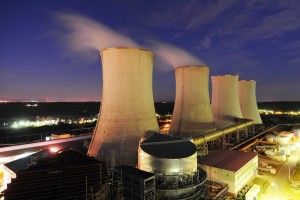
Prior to commercialization the laboratory was historically the lead DOE laboratory to support technologies to enrich uranium and to deal with the residuals and legacies from such processing. Expertise developed for those missions continue to constitute a core technical competency for MCLinc. MCLinc has extensive experience providing technical development and operations support for specialty environmental cleanup efforts.
MCLinc’s scientists are experienced with hundreds of technologies used for remediation of environmental problems. This experience, coupled with our application of logic diagrams to evaluate alternative approaches, results in cost-effective solutions for specialty environmental challenges. The expertise, instrumentation, and laboratory resources of MCLinc provide a direct route for solving diverse environmental and process challenges, including:
- Long-term, low-temperature (LTLT) gas phase decontamination
- In-situ vitrification
- Microwave melting of hazardous, radioactive, and mixed wastes
- Advanced grouting techniques
- Field portable PCB sensing device
- Restoration of metal plating baths
- Use of zero valence metals for hazardous and radioactive metals management
- Analysis of pyrophoric materials
- Preservation of valence state from sampling through analysis
- In-situ analysis of hydration states
- Continuous monitoring applications
- Analysis of highly corrosive materials
- Determination of oxidation states
- Asbestos analysis in radioactive materials
- Interpretation of complex X-ray diffraction patterns
- Evaluation of uranium leachability data
- Field demonstration of waste stabilization
- Characterization of incineration feed materials
- Dedicated capacity* for specific gas chromatography, wet chemistry and atomic absorption metals analyses.
- Development, implementation and documentation of performance based methods** for minimizing project analytical costs.
* Dedicated capacity is the sole commitment to your project of personnel and laboratory equipment to meet your data delivery needs.
** Performance based methods are developed to meet the data quality objectives of your project based on the technologies or the modification of the more onerous regulatory methods.
